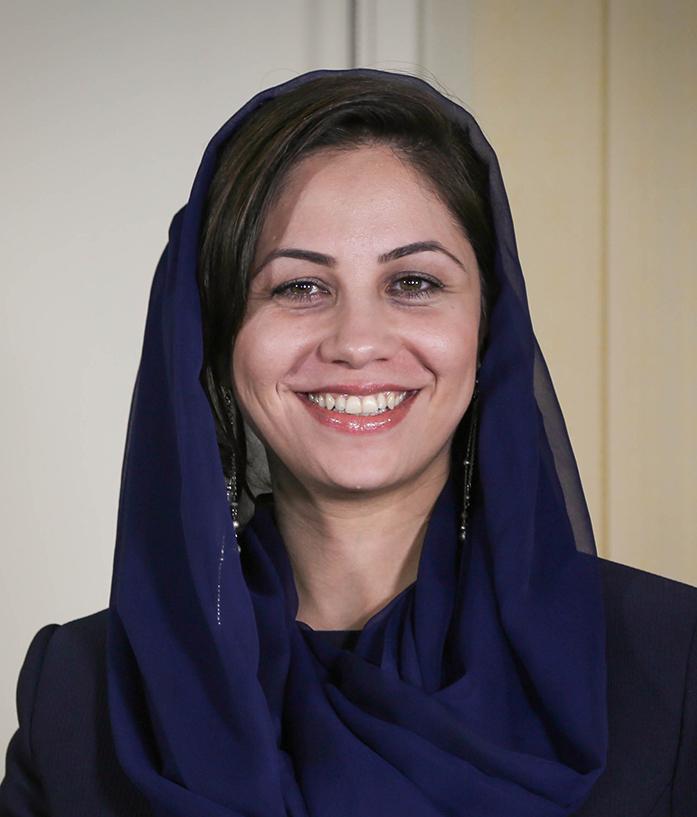Homeria Qaderi talks about her experiences with the Taliban in Afghanistan. (Audio compiled by Claire Dietz and edited by Lily Abromeit)
By Claire Dietz
[email protected]
Homeira Qaderi waited six years before returning to school after the Taliban took over her town in Afghanistan when she was 12.
When she returned, going to the University of Tehran in Iran at 18, she went all in. Now she teaches at the University of Kabul and has published six books. She’s also an activist for women’s rights and a senior adviser to the Minister of Labor, Social Affairs, Martyrs, and Disabled.
None of these came easily.
“My home was as a jail for me,” Qaderi said. “In my best period of time, I could go everywhere, laughing, see my friends, do something for my education, everything was good. And that finished when the Taliban attacked and took the city.”
During this time, Qaderi taught children in her area the basics of reading and writing, because many never had the opportunity to go to school.
“My mom said, ‘Please do something for yourself and the children around you, you can at least teach them how to write and read,’ ” Qaderi said. “And I said to my mom, ‘But what about me?’ and she said, ‘If you do this for the children, God will give you something.’ For this reason I started, and those children were a gift from God for me.”

After the Taliban harassed her for over a short story published in a local newspaper, Qaderi accepted a marriage proposal, which allowed her to attend university in Iran.
With a nearly finished Ph.D., the Iranian government blocked Qaderi from being awarded a degree after she wrote an article in protest of then-President Mahmoud Ahmadinejad.
She began her studies anew in India and received a Ph.D. in Persian studies.
Qaderi’s latest novel explores the history of women, as well as love in relation to women. Qaderi said love must be felt by Middle Eastern women.
“I always mix the history with love because I want the women of my country to experience love,” she said. “Not all women of my country experience love, they are arranged marriages, and they don’t fall in love until after the marriage. They don’t understand, and they don’t know any man before they’re married.”
The role of women is an integral part of Qaderi’s fiction writing as well as her activism. She will continue to fight for women despite receiving threats from the Taliban, she said.
“I started writing about the women because I am a woman, and I always was a fighter in Afghanistan,” she said. “Because after 20 years I realized I can’t just write, I must write and fight.
“You must also be fighting in that country. I fight until I can’t. I don’t know if I can change something or not, but I can change something in my story where the woman is very strong, and she can do something good for her child or for her daughter.”



